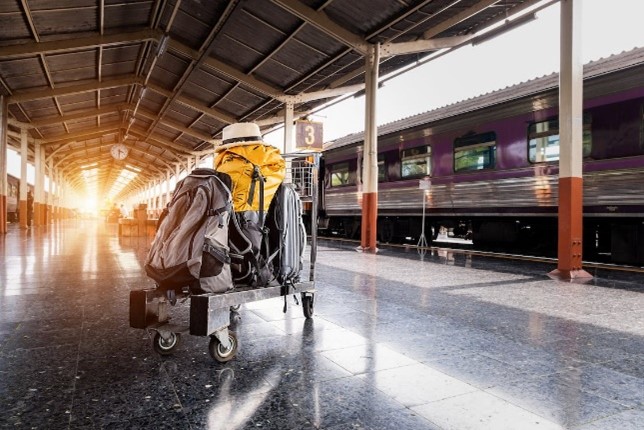
WHAT’S THE NEXT BIG THING IN LUXURY TRAVEL?


Luxury travel is bouncing back, but the sector is looking anything but the same. New trends have taken root and are shaking up the world of affluent travel.
These include a boom in experiential travel at the high end of the market, retreats with a strong focus on health and wellness, and a desire to stay longer in a destination to fully discover its offerings.
Now you might be asking yourself, ‘what’s in’, ‘what’s out’ and ‘what’s the next big thing’ in luxury travel?
![]() WHATS HOT?
WHATS HOT?
Before the pandemic, many APAC ( Asia-Pacific) travellers wanted at least one shopping spree included in their travel itinerary — evident in the groups of Chinese tourists who were once a ubiquitous sight across luxury retail shops in Paris.
Now though, wealthy consumers value experiences more than material goods. This shifting mindset comes from people prioritizing their time over wealth and material goods. 50% of high-net-worth individuals surveyed indicate that they rather have more free time than extra money. In China alone, that number stands at 86%.
The slow, recuperative travel is currently desired among 61% of respondents who say that they prefer relaxing holidays over last-minute bookings and before active, action-packed vacations. Wellness is a key driver in planning these slow, relaxing holidays, with 6 out of 10 luxury travellers in APAC, and 8 out of 10 in China, saying that health and wellness is a big factor in making travel decisions.
Covid-19 still remains on the minds of luxury travellers, alongside safety concerns. Some 57% say that they would prefer visiting a destination that prioritizes health and safety. A huge deterrent for 59% of them is visiting a location that does not take precautions.
![]() WHAT’S NOT HOT?
WHAT’S NOT HOT?
Things on the way out include visiting the same-old destinations. Around 48% of luxury travellers now want to visit new places or have fresh experiences, as opposed to only 24% who still want to travel to familiar locations and places they have been before.
Another trend that’s going away is the superficial jumping from one place to another. There’s a bigger focus on staying in one destination longer to fully immerse in all its culture and offerings than multi-destination trips.
Regarding privacy and exclusivity, luxury travellers are currently of different mindsets. 44% still prefer private or socially distanced holidays, 30% now favour social travel where they can meet new people, and 38% want to visit popular tourist attractions. 
In the past year, the most popular options for wealthy travellers were domestic and regional trips. However, there is now an increasing number travelling further abroad, predominantly to catch up with relatives and friends staying overseas
![]() WHAT’S THE NEXT BIG THING?
WHAT’S THE NEXT BIG THING?
There have been many articles written and speeches given about how mass-market travellers are more willing to spend more on their vacations to make up for lost time. It seems that luxury travellers share similar sentiments, with 48% of them planning to blow more money than they did pre-Covid on lavish trips.
With the heightened desire for extravagance, travel agents will be more sought after for their expertise in planning these complex luxury trips.
Travel agents have a growing influence for many wealthy APAC travellers. 86% of respondents are planning to use a travel agent the same or more than they did pre-pandemic, and what we can learn from this is that the increasing bureaucracy and complexity of travel since the pandemic should really benefit travel agents.
Conversely, travellers also expect more out of travel agents. Agents are required to now have an arsenal of knowledge and capabilities at their fingertips, with more than 80% of travellers looking for them to provide alternative travel ideas and information such as wellness facilities on site.
 More luxury travellers are adopting a greener mindset. Sustainable and eco-friendly trips are on the agenda for 48% of respondents. For 31% of destinations that embark on sustainability initiatives will most likely be a hit with them. Women under the age of 45 are more likely than their senior counterparts of men in general to factor sustainability into their plans.
More luxury travellers are adopting a greener mindset. Sustainable and eco-friendly trips are on the agenda for 48% of respondents. For 31% of destinations that embark on sustainability initiatives will most likely be a hit with them. Women under the age of 45 are more likely than their senior counterparts of men in general to factor sustainability into their plans.

Contents per webintravel.com





